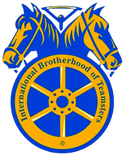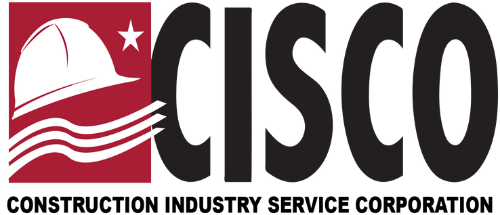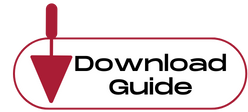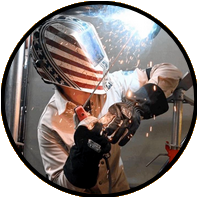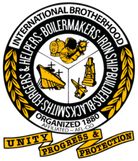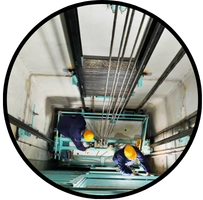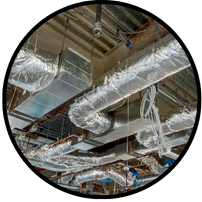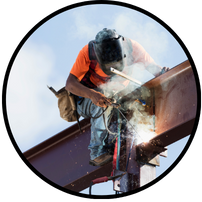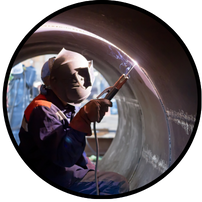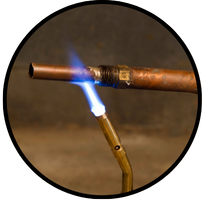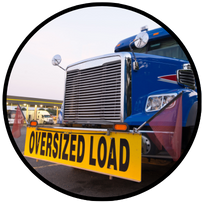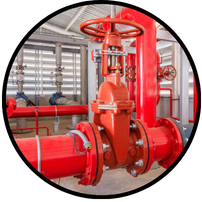
Choosing a Career in Construction is more than building structures – it’s about learning life-long skills, earning competitive wages, and accessing excellent benefits. Union Construction Apprenticeships offer a combination of classroom and hands-on experience training in many types of Trades. The industry’s future continues to thrive, making it an excellent career path for long-term success and various opportunities. Whether you’ve already chosen a craft or are still undecided, this Guide will address numerous questions about pursuing a career in the Union Construction Building Trades.
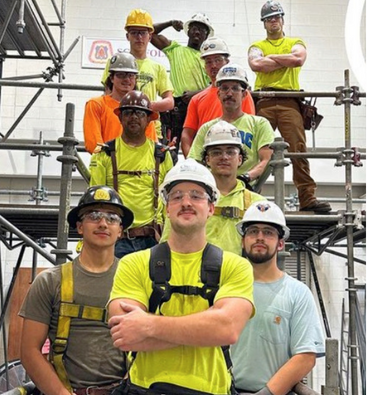
FAQs
- Are Social Security Cards required?
- Can a GED substitute for a High School Diploma?
- How do I request my High School transcripts?
- How do I request a copy of my Birth Certificate?
- Does a previous record affect opportunities in Union Trades?
- Do Unions and Contractors drug test?
- What are the benefits of joining a Union?
- How do I become a member of a Union trade?
- What training and education can I expect from a Union?
- Do I need prior experience to join a Union trade?
Are Social Security Cards required?
Some Union Trades may not mandate a Social Security Number (SSN) or Individual Tax Identification Number (ITIN).
However, some Locals do have this as a requirement.
Can a GED substitute for a High School Diploma?
While the majority of Union Trades accept either, there are specific trades that do not recognize the GED Math Certificate.
How do I request my High School transcripts?
Contact your high school directly about the specific process, which may involve filling out a form and possibly paying a fee. If your school is closed, the Illinois State Board of Education (ISBE) can guide you on where to find your records.
How do I request a copy of my Birth Certificate?
Apply through the Illinois Department of Public Health (IDPH). You’ll need to provide personal details, proof of identity, and pay a fee.
Does a previous record affect opportunities in Union Trades?
Background checks are not typically conducted for entry as an Apprentice in most of the Union Trades. However, some Contractors may require background checks for specific job sites such as Federal buildings, Schools, Nuclear Power Plants, etc.
Do Unions and Contractors drug test?
Every Apprenticeship’s entry process includes either a urine and/or hair follicle drug test to be accepted into the program. Some Unions conduct random drug tests throughout your career. It is also typical for a Contractor to require testing.
What are the benefits of joining a Union?
Joining a Union provides numerous benefits, including fair wages, comprehensive health and retirement benefits, job security, and opportunities for skill development and advancement. The construction and building trades provide a pathway to a debt-free career.
How do I become a member of a Union trade?
To join a union construction trade, research the local union office that your interested in, and follow their specific application process, which may include an apprenticeship program.
What training and education can I expect from a Union?
Union construction trades offer a structured apprenticeship program that combines on-the-job training with classroom instruction. This comprehensive approach ensures that you develop both practical skills and a solid theoretical foundation.
Do I need prior experience to join a Union trade?
Prior experience is not always necessary. Many union construction trades welcome individuals with varying levels of experience and provide training through their apprenticeship programs.

- Application Fees
- Pre-Apprenticeship Program
- Sponsorship or Intent to Hire
- Apprentice
- Journeylevel
- Union Indentured
- Foreman
- Superintendent
- Steward
- Business Agent or Business Manager
- Apprenticeship Director/Coordinator
- Union
- Local
- Hiring Hall
Application Fees:
Non-refundable fees to apply for Apprenticeship programs, typically payable by money order, cashier’s check, or personal check.
Pre-Apprenticeship Program:
A preparatory training program designed to equip individuals with foundational skills and knowledge before entering a formal apprenticeship program.
“Sponsorship” or “Intent to Hire”:
A commitment from an employer to hire an individual for entry into the Union and Apprenticeship program.
Apprentice:
An apprentice is an individual who is learning a trade through a formal apprenticeship program. They work under the guidance of experienced Journeymen to gain hands-on experience and knowledge.
Journeylevel:
Successful completion of an Apprenticeship program.
Union Indentured:
A legally binding contract between an Apprentice and a Union, detailing the terms and conditions of the Apprenticeship.
Foreman:
A supervisory position on a construction site or in a shop, responsible for coordinating the work of a group of workers or a specific project.
Superintendent:
A higher-ranking management position in construction or other industries, managing multiple projects and ensuring their successful completion.
Steward:
A Union member elected or appointed to represent and advocate for the interests of fellow Union members within a specific workplace or department.
Business Agent or Business Manager:
A Union representative who manages the daily business matters of a Labor Union. This position is held by an elected Union Officer who acts as a liaison between the Union, Union members, and Contractors.
Apprenticeship Director/Coordinator:
This Training Center member leads their respective Trade Apprenticeship program. They assist with orientations and Union indenture policies and coordinate required training. The Director also monitors the Apprentice’s progress and measures compliance with Apprenticeship standards.
Union:
A union is an organized association of workers, often in a specific industry or trade, formed to protect and promote their collective interests, such as fair wages, safe working conditions, and benefits.
Local:
In the context of a Union, “Local” refers to a branch or chapter that operates within a specific geographical area, serving as a regional representation of the larger Union.
Hiring Hall:
A strict hiring system that some Trades use to connect Union members to employment. This system operates by referring those on the out-of-work list, usually called in order of layoffs, to available jobs.

Union Apprenticeship Centers typically have similar entry requirements. The standard criteria are outlined below, but any unique specific requirements will be indicated per Trade.
At least 18 years old
High School Diploma or G.E.D.
Birth Certificate
Valid Driver’s License
Reliable Transportation
Pass an Aptitude Test
Physically Fit to Perform the Work
Pass a Urine and/or Hair Follicle Drug Test
Read, Write & Speak in English
If applicable: Military Training Certifications (DD-214)
If applicable: Welding Certifications

Outdoor Exposure
Physical Demands
Loud Noise Levels
Dust & Debris
Potential Hazardous Materials
Extreme Heights
Potential Irregular Hours
Safety Hazards
Teamwork
Required Travel
Heavy Lifting – up to 100lbs
Digging
Climbing
Prolonged Standing
Manual Dexterity
Being on Time/Early
Hand-Eye Coordination
Balance
Agility
Stamina

Union Construction Apprenticeships use a standardized aptitude test for entry. While some Trades’ tests are more tailored to their specific skills, there is much overlap.
Test your math skills in multiplication, fractions, decimals, measuring, and finding the area and perimeter.

Hourly wages for Union construction workers are determined by various factors, such as level of experience, geographical region, specific trade, and the terms outlined in local collective bargaining contracts. These wage rates directly impact what workers receive in their paychecks. It’s important to note that while hourly wages are what appear on the paycheck, benefits are typically paid by the employer in addition to the wage.

Average wages for Northeastern Illinois Union Building Trades


Total benefits packages include health and welfare benefits along with premium health insurance, pensions, and annuities that are in addition to the hourly wages paid to Union members. Premium health insurance coverage provides access to quality medical care for workers and their families, while pensions offer a reliable source of income during retirement, supplemented by annuities to ensure continued financial security. Certain Unions provide exclusive access to private health centers for members and their families, often at minimal to no cost.
- Prevailing Wage
- Hourly Wage vs. Total Benefits Package
- Pension
- Annuity
- Health & Welfare
- Vacation Fund
- 401K
- Savings Fund
Prevailing Wage:
The hourly wage, benefits, and other forms of compensation established by collective bargaining agreements as the standard for a particular occupation or industry within a specific geographical area.
Hourly Wage vs. Total Benefits Package:
The hourly wage rate for Union workers reflects the compensation for the work performed, which is reflected in the weekly paychecks. However, the total benefits package includes additional perks provided by the employer, such as health insurance and pensions.
Pension:
A fund set up by an employer, a Union, or both, to provide financial support to employees after they retire. It serves as a form of retirement income.
Annuity:
A financial product or investment that provides a series of payments made at equal intervals, typically used as a tool for retirement savings.
Health & Welfare:
These benefits refer to a range of benefits provided by employers or Unions to employees, including health insurance, dental coverage, vision care, and other non-pension-related benefits.
Vacation Fund:
Vacation Savings Benefits are paid to members whose contracts include this benefit. Vacation savings is an hourly amount paid to members by their employer and is included in their gross wages.
401K:
A tax-advantaged retirement savings account that is offered through an employer. Contributions are typically made through payroll deductions. At age 59 ½, an employee can begin withdrawing funds to use in retirement.
Savings Fund:
An employer-provided program enabling employees to save funds from their paychecks over an extended period, catering to diverse objectives such as retirement planning.

Boilermaker
Boilermakers are highly skilled in fabricating, assembling, and maintaining boilers, pressure vessels, and industrial equipment.
The Bricklayers Union is made up of several different career path divisions like Bricklayers, Pointer Cleaner Caulkers (Tuckpointers), Ceramic Tile Setters, Ceramic Tile Finishers, and Terrazzo.
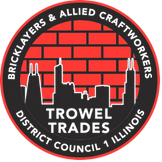
Estimated Journeylevel Wage:
$45-$53 hr
The Carpenters Union is made up of several different career path divisions like Concrete Form Builders, General Carpentry, Floor Coverers, Mill Cabinet, Millwrights, and Pile Drivers.
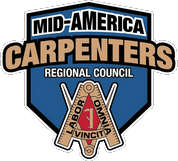
Estimated Journeylevel Wage:
$45-$54 hr
Cement Masons place, finish, and repair concrete, while Plasterers specialize in finishing walls and ceilings, enhancing structures aesthetically and functionally.
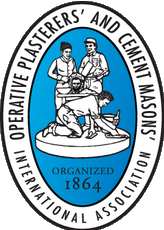
Estimated Journeylevel Wage:
$48-$50 hr
Electricians‘ primary work involves assembling, installing, maintaining, and testing various electrical equipment and supporting components in different specialty divisions.
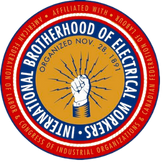
Estimated Journeylevel Wage:
$35-$53 hr
Elevator Constructors specialize in assembling, installing, and maintaining vertical transportation systems like elevators, escalators, and moving walkways.
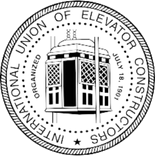
Estimated Journeylevel Wage:
$58 hr
Insulators apply insulation materials to plumbing, HVAC systems, and building structures to prevent the passage of heat, cold, sound, or fire.
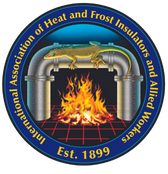
Estimated Journeylevel Wage:
$54 hr
The Ironworkers Union is made up of several different career path divisions like Structural, Architectural/Building, and Fence Ironworkers.
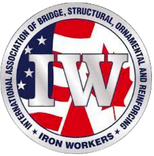
Estimated Journeylevel Wage:
$46-$55 hr
Laborers’ work spans construction, environmental remediation, highways, waste management, bridges, tunnels, and municipalities.
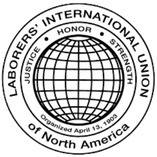
Estimated Journeylevel Wage:
$48 hr
The Operating Engineers Union is made up of several different career path divisions; Heavy Equipment Operator, Heavy Equipment Technician, Geothermal Well Driller, and Construction & Building Inspector.
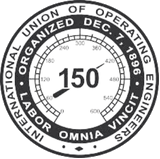
Estimated Journeylevel Wage:
$48-$59 hr
The Painters Union is made up of several different career path divisions like Painting & Decorating, Drywall Finishers (Tapers), Glaziers, Sign Painters, Metal Polishers, and Wood Finishers.
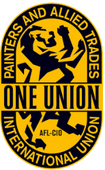
Estimated Journeylevel Wage:
$36-$51 hr
The Pipefitter’s Union is made up of two different career path divisions; Building Trades Pipefitter, Gas Distribution, and HVAC Service Pipefitter.
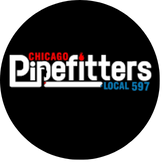
Estimated Journeylevel Wage:
$52 hr
The Plumber’s Union is made up of two different career path divisions; Plumbers and Technical Engineers.
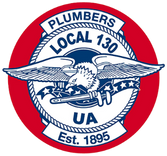
Estimated Journeylevel Wage:
$56 hr
Riggers specialize in the precise and safe handling of large or heavy machines and hauling loads.
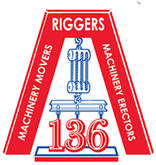
Estimated Journeylevel Wage:
$48 hr
Roofers apply hot and cold build-up for roofing, various single-ply low slope roofing systems, and install shingle, tile, and slate steep roof systems.
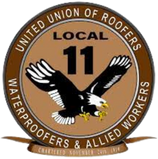
Estimated Journeylevel Wage:
$49 hr
Sheet Metal Workers fabricate ductwork, and install and service HVAC systems.
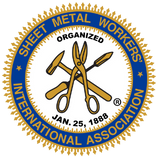
Estimated Journeylevel Wage:
$51-$54 hr
Sprinkler Fitters specialize in installing, inspecting, testing, repairing, and maintenance of various fire protection systems.
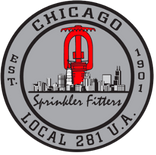
Estimated Journeylevel Wage:
$59 hr
Construction Drivers within the Teamster’s Union work includes loading and unloading Construction materials and equipment safely and efficiently and transporting materials to and from construction sites.
